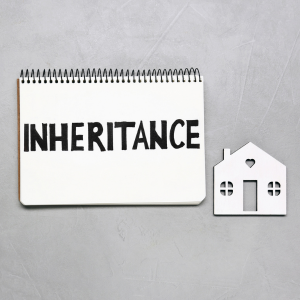
In Washington, getting a house as a gift can be both an opportunity and a struggle. These types of homes are challenging to sell because the market is constantly changing. This comprehensive guide provides everything you need to know, including how to sell your house effectively and where to find the local regulations for your area. If you want to sell your home quickly or make the most money, you need to know how the US housing market works. Before you decide what to do and how to sell your house in the Evergreen State, read what professionals have to say.
Key Highlights
- Understanding Washington inheritance laws and the probate process is crucial for managing inherited properties efficiently.
- Gathering essential documents, such as the will, property deed, and lien releases, ensures a smoother transaction.
- Consult tax and legal professionals to navigate estate taxes, capital gains, and property tax obligations.
- Enhancing curb and interior appeal through strategic updates increases market value and attracts buyers.
- Choosing between real estate agents and private sales depends on the seller’s preferences and desired level of control over the sale.
Understanding the Process of Selling an Inherited House in Washington
If you live in Washington and want to sell a house you own, there are a few key things to know. To begin, familiarize yourself with the local rules. You need to know a lot of Washington laws about property and divorce to do this job well. Do not miss any steps. From the first step, such as determining what the estate owns and how much it owes, to the last, ensuring you have all the necessary papers, pay close attention. If you understand the importance of these steps for your business, it will be easier to sell the house you’ve bought. This book provides important information, such as what to do immediately after receiving a gift and the necessary forms to sell your home for cash in Washington.
Initial Steps After Inheriting Property in Washington
Many people in Washington become emotional when they first receive a house and are unsure of what to do next. Knowing the first steps for taking care of the property you received can help relieve a lot of stress. Start by learning about the estate laws in Washington. These laws will tell you how to sell and distribute the property as a beneficiary. If necessary, initiate the probate process immediately. This process verifies the will and ensures that the deceased person’s assets are divided according to their wishes. Probate may not always be necessary, especially when lands are owned by more than one person or when the will is straightforward and clear. You should also determine the house’s market value before deciding whether to sell it immediately or wait for better times. A real estate agent who knows the Washington real estate market well can give you good advice on when to sell and how much to ask.
Also, review any existing bills or liens on the property. These must be paid off before the sale. Also, consider how the family functions. If there is more than one beneficiary, agreeing on whether to sell or keep the property can help avoid arguments. Open communication keeps everyone on the same page, ensuring the deal proceeds smoothly and efficiently. Lastly, consult a financial adviser about the potential tax implications, including estate taxes, deductions, and credits. Following their advice can help you make informed financial and smart choices about the property you’ve received.
Key Documents Required for Selling an Inherited Property

With all the forms that need to be filled out, it can be hard to sell a family home in Washington. Things won’t take too long if you get these papers together early. To sell the house, you need a verified copy of the will and any probate papers. These papers demonstrate that you are legally permitted to do so and outline how the money will be divided among the beneficiaries. You will also need the property deed, which shows who owns the land and may need to be updated to reflect that it was transferred to you. Washington’s inheritance laws stipulate that if the property is part of a larger estate, all assets and their corresponding market values must be listed in an inventory of the estate. This helps ensure that the right people receive the property. Get the most current property tax report in case you need to pay any taxes before the sale.
Another very important thing is a lien release form for any existing debts or mortgages, and a full title search to determine if any encumbrances may arise during the sale. Putting together a Seller’s Disclosure is just as important. It informs the buyer about any known issues or problems with the house and its condition. This can help you avoid legal trouble in the future. For someone else to sell something, they need to get a power of attorney. Not only does gathering all the necessary information ahead of time speed up the sale, but it also keeps you legally protected and clarifies the process. Before you sell a family property in Washington, you should talk to real estate and legal experts. This will help ensure that the sale remains legal and on track.
Legal Considerations for Inherited Property in Washington
In Washington, you need to know a lot about the law and taxes if you want to sell a family house. Taking care of estate tax, land titles, and liens are all very important parts. Each of these areas has its own problems that, if addressed early on, can keep the trade running smoothly and save a significant amount of money. It’s essential to understand the Washington inheritance rules for this process, as they impact how you’ll pay estate taxes and manage other legal matters related to the property. This section guides handling estate tax and property titles and liens, ensuring you’re prepared for any potential issues that may arise.
Navigating Estate Tax and Other Obligations
If you want to sell a house in Washington that was given to you as a gift, you need to know about capital gains taxes. The amount of estate taxes that need to be paid is based on the value of the land and the total value of the estate. In Washington, people verify whether their wealth exceeds the legal limit to ensure that tax rules are followed. A tax manager or estate lawyer who keeps up with new laws and tax breaks can help you figure out how much the estate is really worth. The house and the cash on hand can both be looked at.
People who acquire land should consider more than just estate taxes when they have existing debts. Additionally, they need to consider property taxes that are past due. When you sell your house, you typically also incur these bills, so it’s essential to know how much you still owe before you do. If you don’t pay your taxes on time, you may encounter liens or other legal issues that can delay the sale. If you owe back taxes, the county tax collector can help you figure out how to pay them quickly and make sure the bill is right.
You need to plan and seek professional help to meet these tax obligations. If you don’t take care of them promptly, they could lead to financial difficulties or disputes among heirs. Read the estate’s financial records carefully and talk to tax experts. This will help you stay on track, protect your interests, and make selling the property you got in Washington easy and cheap.
Dealing with Property Titles and Liens
You need to take care of the land titles and liens when you sell a house you got in Washington. It’s essential to ensure the title is clear, as land title rules can be complex and difficult to understand. If you review the entire title, you may uncover hidden debt or ownership issues that make it more difficult to sell. In Washington, people can’t own something until all of their bills and liens are paid off. Because of this, it’s very important to study.
Taxes, bills, or court orders that haven’t been paid can result in a lien being placed on the estate. These bills must be paid off before the buyer can obtain a clear title to the property. With the help of a real estate agent or title company, you can quickly find any liens and pay them off. Ensure the title is clear and easy to understand. It will be easy to make the deal, and this will also protect you from future claims by creditors or other parties.
This is another effective way to protect yourself in case you discover after the sale that the title has issues. It can cover expenses such as lawyer fees, which is beneficial for both parties. It is best to let professionals handle any issues with the title or liens. It will be easier to sell the house faster, and you won’t have to go to court, which can be costly. It will be simple and risk-free to offer the Washington home you got.
Home Offer Express can help ensure a seamless and worry-free experience, guiding you through every step so you can sell your Washington home quickly and confidently.
Tax Implications of Selling an Inherited House in Washington
When selling a family home in Washington, it’s essential to understand how the taxes will impact the sale. There are several complex aspects to this process, including capital gains, estate taxes, and property taxes. Not figuring out these taxes correctly can have a big effect on your finances when you sell the house you received. It’s important to understand how capital gains work on properties that you receive and how they fit into the bigger picture of estate and gains taxes. By learning more about these complex tax issues, you’ll be better prepared to handle any financial matters that arise during the sale.
Assessing Capital Gains on Inherited Properties
If you live in Washington and want to sell your family home, one of the most important considerations is how the sale will impact your finances. When someone dies and leaves behind a house, the capital gains are based on the house’s fair market value at the time of their death. This is different from when someone sells a house. It’s known as the “step-up in basis.” Gains that are taxed less often occur when the value of the land increases before it is sold. You need to carefully write down this stepped-up base so that you can determine the correct difference between the value you received and the price you paid for it.
This is how you should figure out your capital gains in Washington: get help from a professional and keep very good records. Getting help from a tax pro or real estate tax manager can help you get the most out of state and federal tax breaks and deductions. Some homeowners may be eligible for waivers if they have resided in the house for a specified period of time. If you want to make sure you get all the tax breaks possible when you sell a family home, you should get professional help.
You should not only figure out your gains, but also think about how time, changes to the property, and the market affect your tax bill. Big changes may be able to be written off as costs, which can lower the amount of income that is subject to taxation. You may be eligible for tax breaks if you can demonstrate that the house’s value decreased when it was sold for less than its stepped-up basis. Be aware of these key points and plan to maximize the benefits of Washington’s tax rules, safeguard your finances, and facilitate a smoother sale, ultimately increasing your profits.
Understanding Gains Tax and Estate Taxes in Washington

This is important to know about if you want to sell your family home quickly and easily in Washington. When someone dies, their estate is taxed based on the value of all their assets. They differ from those in Washington, where exemptions are made. Some of an estate’s value is taxed if it exceeds the state’s exemption amount. This might change how the people who will receive the fortune handle and distribute it.
When determining capital gains tax after selling a house, the value of the land is taken into account, including the value after the owner’s death. When you pay estate taxes, on the other hand, they look at how much your whole estate is worth. This can include stocks, real estate, and other things. To make sure you follow the rules and get the best financial results, you need to do careful math to keep track of these two tax obligations. Get help from an estate lawyer who knows the tax rules in Washington. They can help you understand these details and make the process go more quickly.
It’s also important to understand how the two tax schemes interact. The tax caps, rates, and deductions available in Washington may differ from those in other states. When you hire tax professionals, you can be sure that you file your taxes on time, get accurate figures, and find credits or exemptions that can lower your tax bills. Not only does being proactive about capital gains and estate taxes keep you from having unexpected money problems, but it also helps you get the most money from the sale of a property you have received.
Preparing Your Property for Sale in Washington
When someone in Washington wants to sell a family house, they need to make a number of smart changes that will make it more marketable and raise its value. To get a good price for your house and attract buyers, you should work on improving it. This usually means updating both its appearance and its construction. Therefore, the family home needs to be carefully assessed to determine its value before it is listed for sale. To make a sale go easily, you should make your home more appealing and know exactly how much it’s worth on the market.
Enhancing Real Estate Appeal for Buyers
If you want to sell your Puyallup, WA, house faster, and in nearby areas, make it look more appealing so that potential buyers will be interested in purchasing it. First, take a look at the outside. Curb charm is a big part of first impressions. Fix up the steps, paint the outside, and add some plants to make your house look nice. Keep the gardens and front door clean and well-maintained. This indicates that the property is well-maintained and sets the tone for what buyers can expect inside.
It’s just as important to make changes on the inside. Simple changes can make a significant difference, such as painting the walls a neutral color, refinishing the floors, and adding more lighting. Getting rid of unnecessary items and setting up the house with classic, few pieces of furniture can help buyers picture themselves living there, which usually results in higher offers. The real estate market in Washington is very competitive. Professional photos and video tours can help the property stand out even more by showcasing its unique qualities, such as its historic charm or unusual building.
Address any maintenance issues, such as leaks, broken fixtures, or outdated HVAC systems, to ensure the house is ready for occupancy. Get help from a Washington real estate agent who knows what buyers want. They can help you determine which changes will yield the most financial benefits. That way, you can get the most money when you sell the house you received by making smart changes and selling it smartly.
Valuing the Property Before Listing in Washington
Ensure you know the current value of your family home before listing it for sale in Washington. That way, you can set a fair price, get serious buyers, and stay ahead of everyone else. Get a quote on a house from a real estate agent who knows the market in your area first. To get a good idea of how much the home is worth on the market, this review examines its condition, location, any unique features it has, and the prices of similar homes that have recently sold.
You can use the Washington market to figure out how much to charge for your home. So, the price won’t be too high or too low for too long, and the house won’t sit on the market. This is something that a good real estate agent will do for you, in addition to providing the quote. It will help you put your home in the right place by showing you similar sales in the area. Remember the new schools, shopping malls, or train lines that are being built nearby. These improvements can enhance the appearance of your home and increase its value.
Also, consider any outstanding loans or liens that may reduce the property’s value. Taking care of these things early on makes things clear and prevents issues from arising during the talks or close to the end. Real estate agents in Washington can help ensure that the home you buy is priced correctly, set up in the best possible way, and ready to sell quickly and easily.
Exploring Selling Options for Your Real Estate in Washington
To make a good real estate deal, you need to know how to sell a house in Washington in the best way. You can sell it yourself or hire a real estate manager. You can meet your own goals and deadlines while also maximizing the value of your home if you’re aware of these options. Before you decide whether to work with professionals or sell on your own, you should think about the pros and cons of each. Each is good in its own way. There is more information on how to finish the sale in a way that works with the complicated Washington real estate market.
Choosing Between Real Estate Agents and Private Sales
There are two ways to sell a house you have: with or without a real estate agent. The one you choose will depend on your goals, skill level, and familiarity with the process. You can get a lot of help from a real estate agent. For example, they can put you in touch with a lot of possible buyers and tell you secret things about the Washington real estate market. To reduce stress and workload, agents promote, negotiate, and handle paperwork. They know how to set prices and can show you useful tools, such as those for researching different markets. This helps ensure that your house sells for a fair price, which is crucial in the fast-paced New York City market.
The seller has more control over how the sale goes and what the terms are in a private sale. You won’t have to pay agents’ fees, so you’ll save money. People who enjoy being busy might also appreciate it. Individuals who wish to sell can connect with potential buyers through email, social media, and local advertisements. It can take a long time if you don’t have help with the paperwork, talks, and following Washington’s rules on property.
Sales without an agent and sales with an agent both have their pros and cons. Which one you choose will depend on your goals, schedule, and level of involvement. One way to determine how the different options will impact your taxes, capital gains, and overall returns is to consult with a financial or estate planner. Giving these things careful thought will help you choose the most effective way to earn money and achieve your goals. This is true whether you use a real estate professional or sell it yourself, which gives you more options.
Closing the Sale of an Inherited House Successfully in Washington

If you want to sell a family home in Washington, you must take certain steps. There are times when you need to be particularly cautious with the law, finances, and everyday life. Verify that all your bills are paid before signing. This group includes death taxes, capital gains, and any debts or payments that are already due. You can accomplish tasks quickly and easily if you ensure the title is clear and concise.
Often, experts in the field, such as real estate lawyers, tax professionals, and real estate managers, can expedite the process. These individuals in Washington, D.C., ensure that people adhere to the rules regarding real estate. They also help people get tax breaks and other good deals. Additionally, they maintain file records. They also show you how to close the deal. Things like loan rates and buyer checks. Being honest and skilled at bargaining will help the process go smoothly and prevent problems from arising.
Also, get ready. Get together important papers, like the title to the land, tax records, and proof that the lien has been paid off. The buyer can study more quickly, and you can still communicate with them. It should be easy to complete the last few steps, such as trading keys, moving power, and walkthroughs, if you plan. There are quick and safe ways to sell a family home in Washington. Individuals who wish to undertake this endeavor should give it careful consideration in advance, seek professional assistance, and pay close attention to the details.
Are you thinking about selling your home? Home Offer Express makes it easy. We offer fair cash offers, handle repairs, and handle all the paperwork so you can enjoy a smooth, stress-free experience. Have questions? Contact us at (253) 600-3050 for a no-obligation consultation and see how simple selling can be.
FAQs:
What are the initial steps in managing an inherited house in Washington?
Managing an inherited house in Washington begins with understanding local inheritance laws and whether probate is necessary. Gathering essential documents, such as the will and property deed, is also crucial in streamlining the process.
How can I enhance the market appeal of an inherited property in Washington?
Enhancing market appeal can involve improving curb appeal with landscaping and exterior updates, as well as modernizing interiors with fresh paint, lighting, and decluttering. Highlighting unique features and incorporating professional photography can also boost appeal.
What are the considerations for selling an inherited house with a real estate agent versus a private sale?
Selling with a real estate agent provides professional marketing and negotiation skills, while private sales offer greater control and potential cost savings. The choice should align with the seller’s comfort in navigating legal and marketing aspects independently.
What tax implications should I be aware of when selling an inherited house in Washington?
It’s essential to consider estate taxes, capital gains taxes, and property taxes. Consulting with a tax advisor can help minimize liabilities and take advantage of any available exemptions or deductions.
What documents are crucial for selling an inherited property in Washington?
Key documents include a certified copy of the will, property deed, lien releases, and a Seller’s Disclosure. Having these ready prevents delays and provides legal protection during the sale process.
Helpful Washington Blog Articles
- Expert Strategies For Selling A Hoarder House In Washington Real Estate
- Sell Your Home Without a Realtor in Washington
- Selling A Probate House In Washington
- Fixing Up a House to Sell in Washington
- Paperwork for Selling a House by Owner in Washington
- How Long After an Appraisal Can You Close in Washington?
- How to Sell an Inherited House in Washington?
- Can You Sell a House with a Mortgage in Washington?
- Can I Sell a House with a Quitclaim Deed in Washington?
- Selling a Home That Needs Repairs in Washington
- Washington’s Capital Gains Tax After Selling a House

